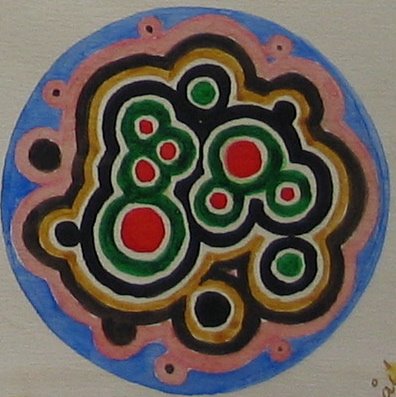In the evenings I was fourth at Bridge, but during the day I passed most of my time with their oldest son, Thorkild, still just a boy of 11, but big and mature for his age. Together we explored the farm, the fields, and the forest; we played games and made theatrical productions with his younger brothers, entertaining the family.
I was very popular with the whole family for my ability to function in both worlds, the children’s as well as the grown-up’s.
One day we listened to a play on the radio. It was about a person who dug up corpses and ate them. As part of the play, in the intermissions between the acts, the microphone stayed open and the actors discussed the play and came thereby to grips with some of their prejudices against other ‘freaks’ like gays and blacks. The play touched me deeply, for I was not unaware of my feelings for Thorkild, and it was a comfort to hear everyone agree, both the actors and the listeners, that prejudice was stupid and evil.
 Through seven years my aunt and I kept visiting from time to time, in the later years I came alone since my aunt was again not well. As Thorkild grew up, my attraction to him grew stronger and found some expression in sparring and physical nearness, and once, when he was 18 and I was 25 - and ebullient with wine - I tried to kiss him after having pinned him to the floor, but he turned his head and evaded me.
Through seven years my aunt and I kept visiting from time to time, in the later years I came alone since my aunt was again not well. As Thorkild grew up, my attraction to him grew stronger and found some expression in sparring and physical nearness, and once, when he was 18 and I was 25 - and ebullient with wine - I tried to kiss him after having pinned him to the floor, but he turned his head and evaded me.I had just come out of the closet to my aunt and my closest friends, but to tell Thorkild, with whom the sexual vibrations were alive, was more difficult. The kiss had been a way of saying without saying, but it didn’t bring any opening and I decided to write instead. In my letter I said rather bluntly how I wanted him and felt that maybe there was hope that he felt the same way. I had to be open about my feelings and, whatever he felt, the most important was our friendship.
His answer was defensive: how could I think there was hope? He could never do a thing like that and he had guessed and feared that I was gay.
I wrote back that I was sorry, but I had had to talk; all I wanted was to be open and be his friend. Could I come? Could we see each other?
This time Ellen wrote back. I should stick to my own kind, she said, and I had hurt her son, he had cried and she did not think it was time yet for me to come.
I never saw Thorkild again.
I went through a period of frustration and anger, arguing my case through the long sleepless nights. A son and a brother I had been in that family, who professed their liberal dissociation from prejudice, and yet they would never let me speak my case. Their total rejection nourished a debilitating fear in my mind that too often made my actions cramped and untimely.
I understood later how I set myself up. Thorkild could not have reacted differently precisely because he had known, and he had felt, and my bluntness scared him too much.


No comments:
Post a Comment